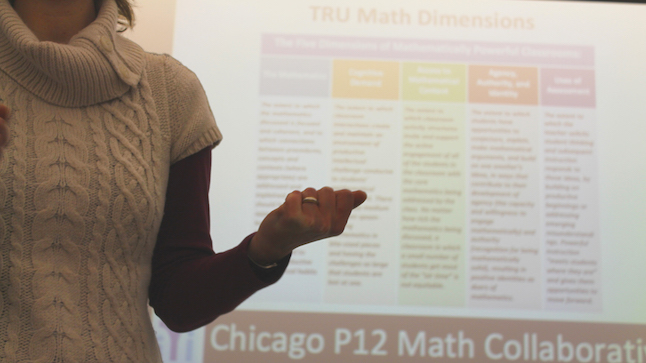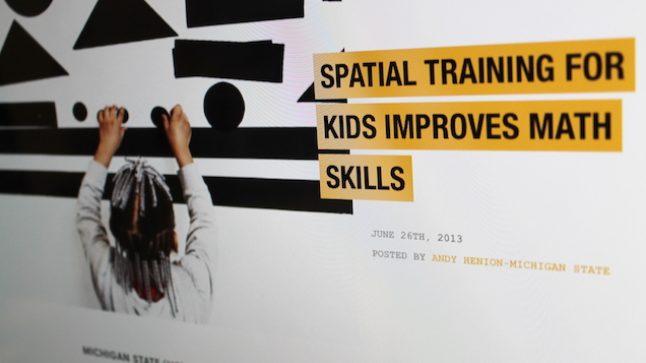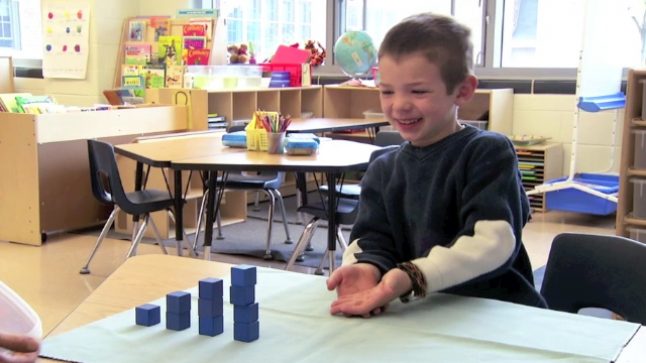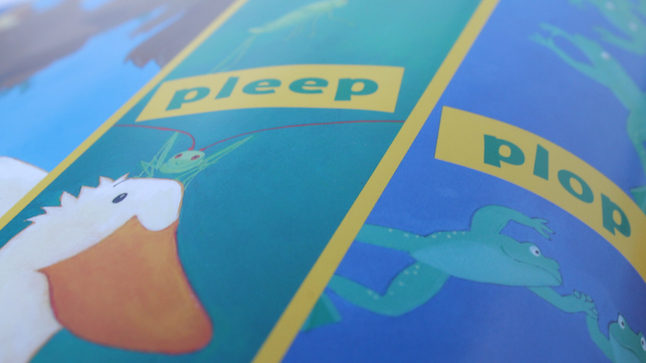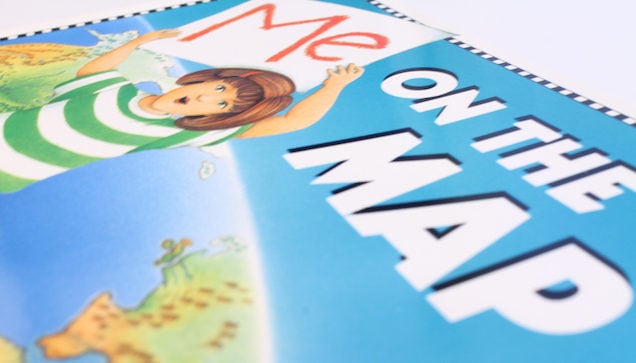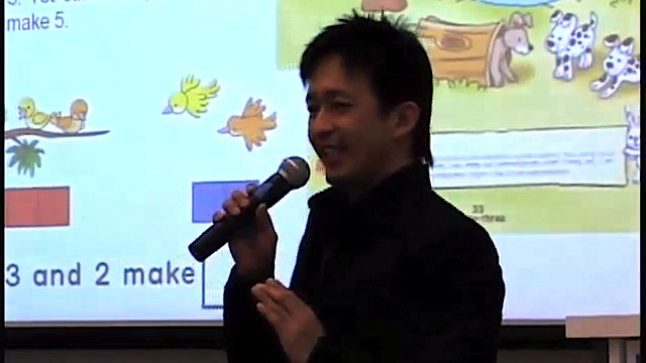1st Grade Math
Series: About Early Math
Why Do the Math Wars Rage On?
July 18, 2013
Are the "Math Wars" back like a bad movie sequel? Why does the debate continue, sometimes vehemently, even when most people agree that quality math education must focus on both skills and conceptual understanding?
- Age/Grade Level: Pre-K, Kindergarten, 1st Grade, 2nd Grade, 3rd Grade
- Tags Common Core, CCSS
Series: Hear from the Experts July 18, 2013
The Connection Between Spatial Reasoning Ability and Math
Research out of John Hopkins University and Michigan State University suggests that a strong link exists between young learners' spatial reasoning and computation abilities.
- Topic: Spatial Relationships
- Age/Grade Level: Pre-K, Kindergarten, 1st Grade, 2nd Grade, 3rd Grade
Series: Focus on the Child February 28, 2013
Growing Patterns with Child 30
A student identifies a pattern of increasing quantity.
- Topic: Pattern
- Age/Grade Level: Pre-K, Kindergarten, 1st Grade
- Tags Child 30
Series: Book Ideas, Ideas at Work February 18, 2013
Exploring Geometry with The Secret Birthday Message
Sharon Hogan and her preschool class at Peterson School had all kinds of fun with the way Eric Carle’s The Secret Birthday Message plays with the two main faces of geometry—shapes and spatial sense.
- Topic: Spatial Relationships
- Age/Grade Level: Pre-K, Kindergarten, 1st Grade
- Tags English Language Learner, Mapping, Books, Eric Carle, The Secret Birthday Message
Series: Hear from the Experts February 17, 2013
Lesson Study Approach with Yeap Ban Har
Yeap Ban Har explains the Lesson Study approach.
- Age/Grade Level: Adult Learners, Pre-K, Kindergarten, 1st Grade, 2nd Grade, 3rd Grade
- Tags Yeap Ban Har, Lesson Study
Series: Book Ideas February 15, 2013
What Kind of Counting Book Is It?
There’s nothing like a stack of attractive counting books to help young children explore number. However, it’s worth taking the time to analyze exactly how the numbers in the book are put to work, so…
- Topic: Counting
- Age/Grade Level: Pre-K, Kindergarten, 1st Grade
- Tags Animals, Books, April Pulley Sayre, Donald Crews, Ten Black Dots, One is a Snail Ten is a Crab, One Duck Stuck, Phyllis Root
Series: Book Ideas February 15, 2013
Good Books Are Good for Math
We find that one sure fire way to warm up children’s attitude towards mathematics is to build math activities and lessons out of the books they all love to read. When we start to sort…
Series: Book Ideas February 14, 2013
Exploring with Me on the Map and Where Do I Live?
Me on the Map by Joan Sweeney and Where Do I Live? by Neil Chesanow are two books that give children a way to explore where they are in relationship to other things and places.
- Topic: Spatial Relationships
- Age/Grade Level: Pre-K, Kindergarten, 1st Grade, 2nd Grade, 3rd Grade
- Tags Mapping, Neil Chesanow, Where Do I Live?, Me on the Map, Joan Sweeney, Books
Series: Hear from the Experts February 10, 2013
Why Singapore Leads the World in Early Mathematics
At Erikson Institute's first International Symposium on Early Mathematics Education, Dr. Yeap Ban Har explains the core competencies and philosophy at the foundation of the world's highest-ranking early mathematics education program.
- Age/Grade Level: Adult Learners, Kindergarten, 1st Grade, 2nd Grade
- Tags Yeap Ban Har
Do the math.
Free videos.
Free newsletter packed with ideas.
Free professional learning modules.
